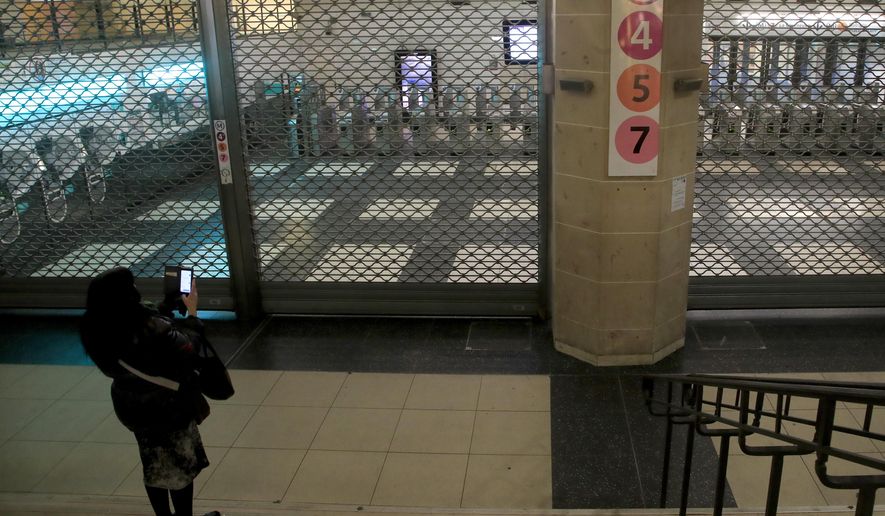PARIS (AP) - French President Emmanuel Macron remains determined to push ahead with an overhaul of the nation’s pension system despite more than a week of nationwide strikes that paralyzed public transport in Paris, where stores and restaurants have seen eroding profits.
Yet, travelers from around the world have continued to visit the City of Light as the holiday season approaches, according to the Paris tourism office.
Speaking in Brussels, Macron said Friday the “historic reform” aims at better equipping the country for 21st century challenges.
The changes, which include raising the retirement age to 64 and ending special privileges for some workers, will make the pension system fairer and will keep it out of debt, he added.
Macron expressed “solidarity” with his fellow citizens, but did not specifically address unions’ complaints or the transport headaches that travelers have been facing since the strikes began Dec. 5.
Major unions want to push the strike through Christmas.
The many French workers who support the strike fear the pension changes will force people to work longer for less money and threaten the country’s welfare system.
It’s too early to fully assess the strikes’ impact on tourism and Paris businesses, tourism office director Corinne Menegaux told the Associated Press. Still, despite an initial slump in hotel reservations, bookings ahead of the “most important time of the year” - Christmas and the New Year - have continued to grow, she said.
Menegaux pointed to difficulties getting to and from airports. The city has put in place additional airport shuttles as the strikes wear on. Still, foreign tourists have continued to visit the city and explore its sites on foot, she said.
“What’s magic about Paris especially is that it’s a very resilient destination,” Menegaux said. The surge in tourism the city saw from April to November can help make up for any losses in December, she added.
Only two of 14 metro lines in the French capital are fully functional, and regional trains are running irregularly.
Crowded and unpredictable trains and traffic jams stretching hundreds of miles have created headaches for local residents, particularly those who commute into the city for work.
As more people stay home and fewer French travelers come into the city, restaurants and stores have seen a drop in customers, according to Menegaux.
The Eiffel Tower and several museums were closed the first day of the strikes, but they have since reopened. The Louvre has shuttered several exhibits, and some museums and tourist attractions have reduced visiting hours.
For the most part, though, tourists visiting this month still have access to Paris’ famous attractions.
Tourists who enjoy walking, like Oscar Carrillo and Mayra Dono from New York, didn’t mind seeing the city on foot.
“We walked a lot. I like to walk, but we have to because everything was closed,” Carrillo said. “It was our first time here, so we liked it and maybe next year we’ll come back.”
For older and less able visitors, however, the strikes restrict mobility.
Chiara Mascagni and Andrea Strino from Italy walked for an hour and a half with their bags to get to their hotel - a journey that, as they pointed out, not everyone can undertake.
“We are young and we want to walk but other people can’t come here because of the strike,” they told the AP.
—-
Mstyslav Chernov contributed reporting




Please read our comment policy before commenting.